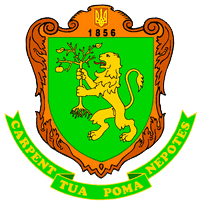Dynamic analysis of the slotting machine mechanism
DOI:
https://doi.org/10.31734/agroengineering2021.25.042Keywords:
lever mechanisms, slotting machine mechanism, kinematic and kinetostatic characteristics of lever mechanismsAbstract
The article studies the kinematic characteristics of the links and individual points of the mechanism by using the method of closed geometric contours and the method of designing plans. The forces of interaction between the links of the mechanism are determined by the method of kinetostatics, and the balancing moment - by considering the dynamic equilibrium of the crank. Moreover, the balancing moment is determined by the method of power balance. The error does not exceed 10-12 %, which indicates the correctness of the analysis. The obtained analytical dependencies are ready for programming.
The research results are presented in the form of graphical dependencies of the cutter kinematic parameters, the balancing torque, the torque of resistance forces, reduced to the moving link and the moment of inertia, the reaction force between the riser and the slide on the angle of rotation. Hodographs of reactions forces were created for rotating kinematic pairs.
The dynamic and mathematical models of the mechanism motion are shown and their parameters are determined. The technology of determining the power of the electric motor is shown on the example of the slotting machine mechanism, where the torque of driving forces depends on the angular velocity, and the moment of inertia is a sharply nonlinear function. The stable part of the motor operation is approximated to a straight line, and the torque of resistance forces - to the vector of values.
To ensure the movement of the cutter with a quasi-zero speed in the middle of the kinematic cycle, it is proposed: to apply a mechanism in which the length of the crank must be changed according to a given program depending on the rotation of the crank; to synthesize a new law of change in the length of the crank or use a known one, under which the cutter moves without soft shocks and with a quasi-zero speed section in the middle of the kinematic cycle.
References
Belokoniev, I. M. (1990). Teoriya mekhanizmov i mashyin. Metody avtomatyzovanogo proektirovanniya. Kyiv: Vyshcha shk. [in Russian].
Kinytskyi, Y. T. (2002). Teoriia mekhanizmiv i mashyn. Kyiv: Nauk. dumka. [in Ukrainian].
Kinytskyi, Y. T., Kharzhevskyi, V. O., & Marchenko, M. V. (2014). Teoriia mekhanizmiv i mashyn v systemi Mathcad: navch. posib. Khmelnytskyi: KNU. [in Ukrainian].
Kryzhanivskyi, Y. I., Malko, B. D., Senchishak, V. M., Stotskyi, F.I., & Yurkovskyi, P.V. (1996). Kursove proectuvannia z teorii mekhanizmiv i mashyn: navch. posib.vano-Frankivsk. [in Ukrainian].
Pasika, V. R. (2001). Analitychnyi metod planiv u kinetostatychnomu analizi vazhilnykh mekhanizmiv II klasu. Polihrafia i vydavnycha sprava, 38, 43–62. [in Ukrainian].
Pasika, V. R. (2001). Kinematyka vazhilnykh mekhanizmiv z hrupamy Assura ІІІ-V vydiv. Polihrafia i vydavnycha sprava, 1, 36–40. [in Ukrainian].
Pasika, V. R., & Heletii, V. M. (2019). Analitychnyi metod doslidzhennia vazhilnykh mekhanizmiv II klasu. Lviv; Drohobych: POSVIT. [in Ukrainian].
Pasika, V. R., & Poliudov, O. M. (2002). Heometrychnyi syntez kryvoshypno-povzunnykh mekhanizmiv za zadanym peremishchenniam povzuna. Naukovui visnyk: zb. nauk.-tekh. prats, 12.8, 174–179. [in Ukrainian].
Pasika, V. R., Heletii, V. M., & Solohub B. V. Kinematychne syntezuvannia zakoniv periodychnoho rukhu: Monohrafiia. - Lviv: Levada. 2021 - 123 p. [in Ukrainian].
Romasevych, Y. O., Rybalko, V. M., & Matukhno, N. V. (2015). Vybir electrodvyhuniv dlia mashyn i mekhanizmiv, yaki zabezpechuiut vyrobnychi proctsesy u silskomu i lisovomu hozpodarstvi. Kyiv. Retrieved from
Yudin, V. A., & Petrokas, L. V. (1977). Teoriya mekhanizmov i mashyin. Moskva: Vyshch. shk. [in Russian].
Zablonskiy, K. I., Belokoniev, I. M., & Shchiekin, B. M. (1989). Teoriya mekhanizmov i mashyin. Kyiv: Vyshcha shk. [in Russian].


